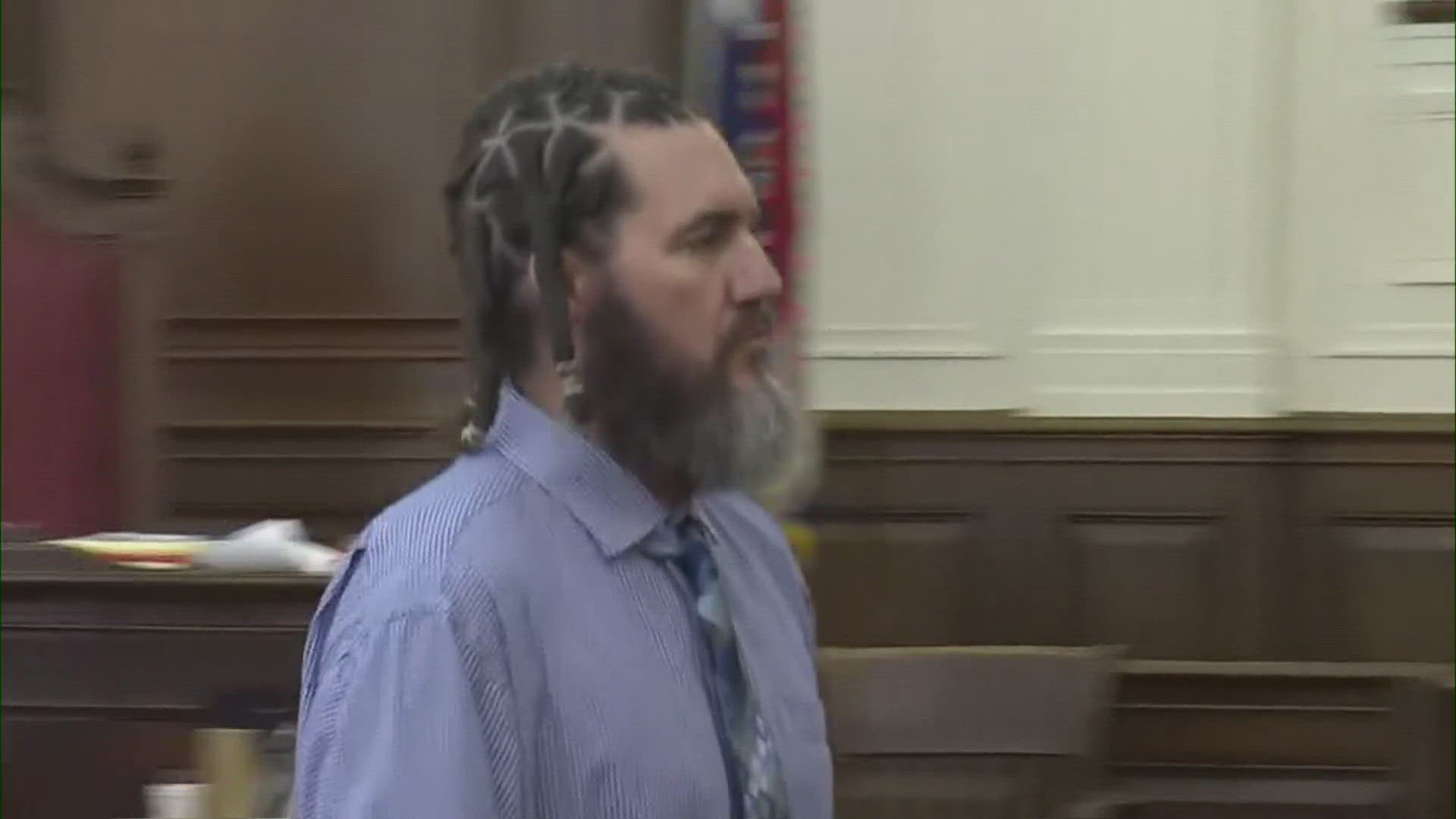ST. LOUIS — Amy Kinworthy is Thomas Kinworthy’s ride-or-die love.
That’s what she told jurors during the seventh day of his trial for the murder of St. Louis Police Officer Tamarris Bohannon.
This, despite admitting he had committed acts of domestic violence against her during their 15-year marriage, which ended in 2019. Despite his unfaithfulness. Despite his refusal to apologize for anything he ever did to her because he told her he did not remember it. Despite not providing for the two young children they shared. And despite his drug use.
“I will be his advocate 100%,” she told jurors.
“Why?” Assistant Public Defender Anne Legomsky said.
“He’s sick, he’s a sick individual, and I believe he needs help,” she said. “He needs help.
“He needs medication, he needs therapy, he’s broken. He’s a broken man.”
Amy Kinworthy was the second witness for the defense, which is trying to convince jurors he should be found not guilty by reason of mental defect.
Thomas Kinworthy is also facing charges related to wounding another officer during the incident in August 2020. It happened in the Tower Grove South neighborhood. Amy Kinworthy testified that she would be her ex-husband’s 100% advocate no matter what.
Less than an hour after she said that, Assistant Circuit Attorney Tanja Engelhardt played a recording of a phone call Amy Kinworthy had with a detective from Florida investigating her ex-husband for a separate crime.
“Do you think he’s capable of doing something like this?” the detective could be heard asking her.
“This man is, the only word that I can describe without being dramatic is the devil,” Amy Kinworthy could be heard telling the detective in 2019. “This man does not care about life.
“He does not care about prison. He doesn't care. He doesn't care.”
He could also be heard telling her in a recorded phone call from jail following the murder how someone else they knew was diagnosed with schizophrenia, died by suicide and got money each month for their children.
Prosecutors also played a recording of a jail call in which Amy Kinworthy cursed him out for leaving her on her own to financially support their children. She later told jurors she regretted saying those things to him.
Engelhardt also presented Facebook postings from Thomas Kinworthy’s pressure washing business in which it appears he was stating he left his wife and kids for a 50-year-old woman who was financially supporting him and taking him to Aruba.
Amy Kinworthy denied having the password to that account to be able to make those posts after Engelhardt said it sounded a lot like what a woman scorned would post.
“And yet, you’re still here supporting him,” Engelhardt told Amy Kinworthy.
“Yes,” Amy Kinworthy responded.
The defense also called another forensic psychologist to the stand, who testified that she believed Kinworthy had schizophrenia.
The defense then rested its case, and Thomas Kinworthy waived his right to testify on his own behalf.
Prosecutors then began presenting their rebuttal witnesses, including psychologist Dr. Rachel Springman of the St. Louis Forensic Treatment Center.
She said she’s offered opinions about whether someone can be found not guilty by reason of insanity about 119 times. She disagrees with the two opinions defense attorneys received from forensic psychologists, which concluded Kinworthy is mentally ill and does meet the criteria for an insanity defense.
One of those psychologists, Dr. Patricia Kapf, drew the ire of Judge Elizabeth Hogan during her testimony Monday, when she began telling the jury Kinworthy would be taken to a hospital if he was found not guilty by reason of insanity. Prosecutors objected and Hogan sent the jury out of the room before admonishing Kinworthy's public defenders.
Hogan then called the jury back in the courtroom and ordered them to disregard Zapf's last statement, calling it "completely false and inaccurate," and reminding them they would receive accurate information about sentencing in their jury instructions. Zapf raised her eyebrows at the judge's comment.
Springman said she spent about 50 hours working on the Kinworthy case and also reviewed Zapf's report.
Zapf relied on interviews she conducted with Amy Kinworthy, Thomas Kinworthy Sr. and Thomas Kinworthy's step-mother. Springman said she did not interview those family members for her report because she did not find their statements to Zapf to be credible.
She also said she used confidential tests to determine whether Kinworthy was feigning mental illness, and concluded he was.

